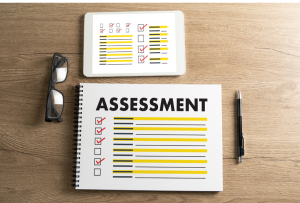Personal Data Protection in Indonesia: Steps Towards Compliance and Security
In the digital era, personal data has become a valuable commodity. Every online activity, from shopping to social media engagement to mobile banking transactions, generates vast amounts of personal data. This data, if left unprotected, can be exploited for various illegal activities such as fraud, identity theft, and even harassment.

Recognizing this urgency, the protection of personal data has become a vital necessity. Its goal is to uphold individuals’ rights to their personal data and ensure its responsible use and consent. The government’s seriousness in protecting personal data is evidenced by the enactment of the Personal Data Protection Law (UU PDP) in 2022. This UU PDP Law No. 27/2022 marks a significant historical milestone in safeguarding individual rights and privacy in the digital age.
The UU PDP was officially enacted on October 17, 2022. Therefore, companies have until October 17, 2024, to align their personal data protection policies with the provisions outlined in the UU PDP. During this period, companies are expected to ensure that all processes of personal data processing are carried out following the guidelines outlined in the UU PDP.
What should companies prepare for compliance?
There are several things that companies need to prepare to comply with these regulations. Here are some of the key aspects:
- Personal Data Protection Policy:
Companies should develop clear and comprehensive internal policies regarding personal data protection. This policy should include principles of data protection, data collection purposes, types of collected data, data usage methods, and security measures implemented to protect the data.
- Privacy Risk Assessment:

Companies should conduct privacy risk assessments to identify potential risks to the personal data collected, processed, or stored. These risk assessments can help companies identify threats and vulnerabilities and take steps to mitigate these risks.
- Data Protection During Storage and Processing:
Companies should implement technical and organizational measures to protect personal data during storage and processing. This may include data encryption, strict access controls, continuous security monitoring, and other security measures in line with industry standards and best practices. - Notification to Data Owners:
Companies should notify data owners (data subjects) regarding the collection, usage, and processing of their personal data. These notifications should be transparent, easily understandable, and include information about data owners’ rights and how to access or update their personal data. - Establishing Strong Personal Data Protection Arrangements:
Establishing strong personal data protection arrangements in contracts with third parties, including service providers, vendors, and other business partners who may access or process personal data. - Implementation of Supervision and Control:
Companies should ensure that their data management systems are equipped with adequate supervision and control to monitor compliance with data protection policies, detect breaches, and respond to them promptly. - Employee Training and Awareness:
Companies should provide training and awareness to their employees about the importance of personal data protection, internal company policies, and the steps to maintain data security. - Compliance with UU PDP Provisions:
Companies should actively ensure compliance with all provisions outlined in the UU PDP, including requirements for reporting data breaches, processing data of children, international data transfers, and data owners’ rights. - Consultation with Data Security Consultants:

Consultation with data security consultants like IFCG to gain comprehensive insights and advice on the steps needed to comply with the UU PDP.
Conclusion
Compliance with the Personal Data Protection Law (UU PDP) in Indonesia requires comprehensive steps from companies, including the development of internal policies, privacy risk assessments, and the implementation of technical measures. This is not only a legal obligation but also a crucial investment in safeguarding individual privacy, building trust, and protecting the company’s reputation in the current digital era.
IFCG is committed to supporting companies in addressing the challenges of personal data protection and designing robust strategies to safeguard data integrity and security, while also strengthening trust in the ever-evolving digital age. Contact us to consult with our expert team!



